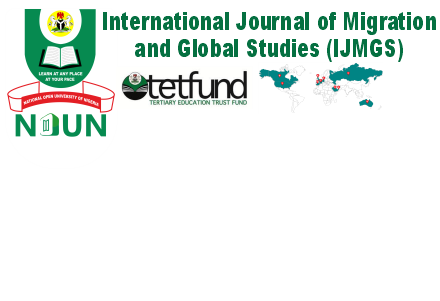The essence of government is basically the provision of governance to her citizens. Where such exists, society will be stable as citizens can afford decent meals, housing, healthcare, security, and other opportunities owing to the positive decisions of the government. Where the reverse is the case, then such a society as evident in Africa would experience more of her youth align with the concept “Japa” – a popular word in Nigeria that translates to migration. This paper examines the underlying impact of the Mediterranean route on the mortality of young Africans, who attempt to cross over to the other side of the aisle for a better life, howbeit illegally. The paper argues that the Mediterranean as an interface route, between Africa and Europe, is not only a death trap to young African immigrants but an opportunity for such youths to bid farewell to a continent, in this case, a country that ungraciously disdains her young. The paper interrogates the sustainability of the Mediterranean as a death trap and questions if there is the hope of a better continent for the African youth. Beyond extant literatures, primary data was solicited from 60 respondents and presented in a tabular form using simple percentages. The Paper reveals that the demographic characteristics of African migrants who arrived Europe successfully via the Mediterranean, as well as the dead or missing were mostly young and educated people within the age range of 15 to 35. The paper also shows that, social seclusion in the form of deprivation and especially the Eldorado dream are the main reasons that compel the African or Nigerian youth to engage in the decision to emigrate regardless of the associated risks of even dying in the Mediterranean. Inter alia, paper recommends the intervention of international communities in developing a multilateral monitoring process around the Mediterranean Sea.
